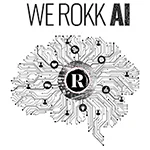 |
| Heather Kernahan |
Among the many consequences of the COVID-19 pandemic, there's been a notable change in professionals' attitudes as they pertain to work.
People have reassessed what matters to them and increasingly are acting to turn their aspirations into reality, whether that's a determination to stick with remote working to reduce their everyday commute and allow for more family time or to leave their current job and pursue a passion project, as witnessed by the rise of the "Great Resignation."
The ramifications of these actions are simple; HR and management experts have been warning companies of the Great Resignation and it's here, whether we like it or not. Businesses face the risk of damage through a sudden draining away of talent. In fact, according to a recent survey by Bankrate, 55 percent of Americans anticipate looking for a new job that's a better fit for them, foreshadowing a continued trend of the Great Resignation.
| This article is featured in O'Dwyer's Nov. '21 Technology PR Magazine (view PDF version) |
At the same time across the country, news reports blare out that there are more jobs now than workers as the economy comes roaring back.
This is a complex situation, and from the hundreds of tech leaders we've been talking with, no one seems to have the right answer. With no proven solution having surfaced just yet, we should take the time now to pause and decide if we're asking the right questions about this problem.
Given the last 18 months—the worries, frustrations and constant changes—we need to focus on giving people greater freedom to accommodate what's right for them: a "New Deal" and a sweeping away of needless restrictions.
A key part of this is a philosophy called Thoughtful Working, which has been around since before the pandemic struck. It's a results-oriented approach to work that prioritizes autonomy and accountability and sees work as what you do, not a place you go.
At its core, Thoughtful Working aims to expand the possibilities of how people work and how businesses can grow toward the future. For instance, by opening up roles to people who don't live in or close to big cities like London, New York and San Francisco, companies have access to a broader talent pool, benefiting both them and their clients, providing them with a competitive advantage against others in their industry.
Now, after the challenges and subsequent opportunities introduced over the last year and a half, businesses must look to take a step further toward Thoughtful Working 2.0. I know at my company, we've questioned everything over the past year and are working on questioning the assumptions we've had about what it means to be a high-performance organization. We want to give our team the space to decide how they want to contribute to our work together. And we intend to meet our diversity, equity and inclusion commitments as we do this. Here are some ways we can all start rethinking our work and approach to Thoughtful Working 2.0.
Reach beyond the current industry talent pool
Open doors to diverse individuals who think differently and move your business ahead. At Hotwire, for example, we're looking for great people in sectors like travel, tourism and manufacturing who are interested in transitioning into a career in the tech industry and who we know will make a big, positive difference for our clients.
Spread a wider net
More and more companies are recognizing the advantages that stem from many having a workforce with diverse viewpoints and backgrounds. Still, we need to do better. Silicon Valley, where I'm based, may be a hothouse for technological change, but as The Wall Street Journal observes, this tech hub still struggles from a continuing diversity problem. All the more reason to spread our hiring nets wide.
Champion different ways of working
At the same time, Thoughtful Working 2.0 means trying our hardest to meet our employees where they are now in their lives. Aim to create an environment where employees have the confidence they need to come forward and articulate what they want. In a number of cases, businesses like yours and mine can likely help them achieve what they've wanted for so long as we're willing to listen and champion different ways of working.
If that passion project is calling, rather than simply resign, my hope is people will discuss it, so we don't lose them entirely. We'll work to make it work somehow. One recent solution at my company was to support a switch to a contractor role with reduced hours so that someone on our team could explore their interest in social impact. Another example was when a member of our team decided to go back to school for a few months, but remains working with us on one client only now.
Make mental health a priority
More people than ever are also needing to prioritize their mental health. Research shows coronavirus response measures have taken a heavy toll on mental health and this is one of the long-term concerns of business leaders.
The Center for Workplace Mental Health is monitoring employee mental health and wellbeing and have reported that anxiety and depression symptoms have more than tripled since 2019, with Black Americans shouldering the heaviest burden. If someone wants to cut their workload for a period of time, possibly for health and wellbeing issues, that shouldn't be an awkward conversation. Remain supportive, even after COVID-19 restrictions have been lifted.
As we look toward further implementing Thoughtful Working 2.0, all of the above is possible when organizations give their people autonomy and accountability. In other words, trust them. It's with this high degree of trust that businesses can feel comfortable reshaping agreements with employees concerning how they work.
The next few years will see continuous change but, as leaders, we don't need to be at the tail end of the impact. We can be proactive in creating a New Deal, and, for our people, Thoughtful Working 2.0 will be even better than version 1.0. When our team is looking after themselves and their loved ones, it will ultimately create a stronger business for everyone.
***
Heather Kernahan is Global CEO of Hotwire.


 Laura Anderson, who rose to VP/GM of global communications and events in a nearly 20 year stint at Intel, will take on the Americas technology chair at Burson following the completion of the BCW and H+K merger on July 1.
Laura Anderson, who rose to VP/GM of global communications and events in a nearly 20 year stint at Intel, will take on the Americas technology chair at Burson following the completion of the BCW and H+K merger on July 1. WE Communications has partnered with ROKK Solutions to form the WE ROKK AI service.
WE Communications has partnered with ROKK Solutions to form the WE ROKK AI service. In the dynamic world of modern business, effective communication is a pivotal tool for success across various industries. At Communications Strategy Group (CSG®), our expertise in embracing innovation in communication extends beyond traditional marketing strategies, paving the way for transformative industry-specific solutions.
In the dynamic world of modern business, effective communication is a pivotal tool for success across various industries. At Communications Strategy Group (CSG®), our expertise in embracing innovation in communication extends beyond traditional marketing strategies, paving the way for transformative industry-specific solutions. There are two types of tech PR professionals. Which one are you? And are C-suite executives making that decision for you?
There are two types of tech PR professionals. Which one are you? And are C-suite executives making that decision for you? While there’s an impulse to grab reporters’ attention with the newest industry-transforming tech product or service, a back-to-basics approach focused on telling the right stories to the right people is a far more successful way to ensure your technology campaign breaks through the clutter of today’s crowded tech landscape.
While there’s an impulse to grab reporters’ attention with the newest industry-transforming tech product or service, a back-to-basics approach focused on telling the right stories to the right people is a far more successful way to ensure your technology campaign breaks through the clutter of today’s crowded tech landscape.


 Have a comment? Send it to
Have a comment? Send it to 
No comments have been submitted for this story yet.